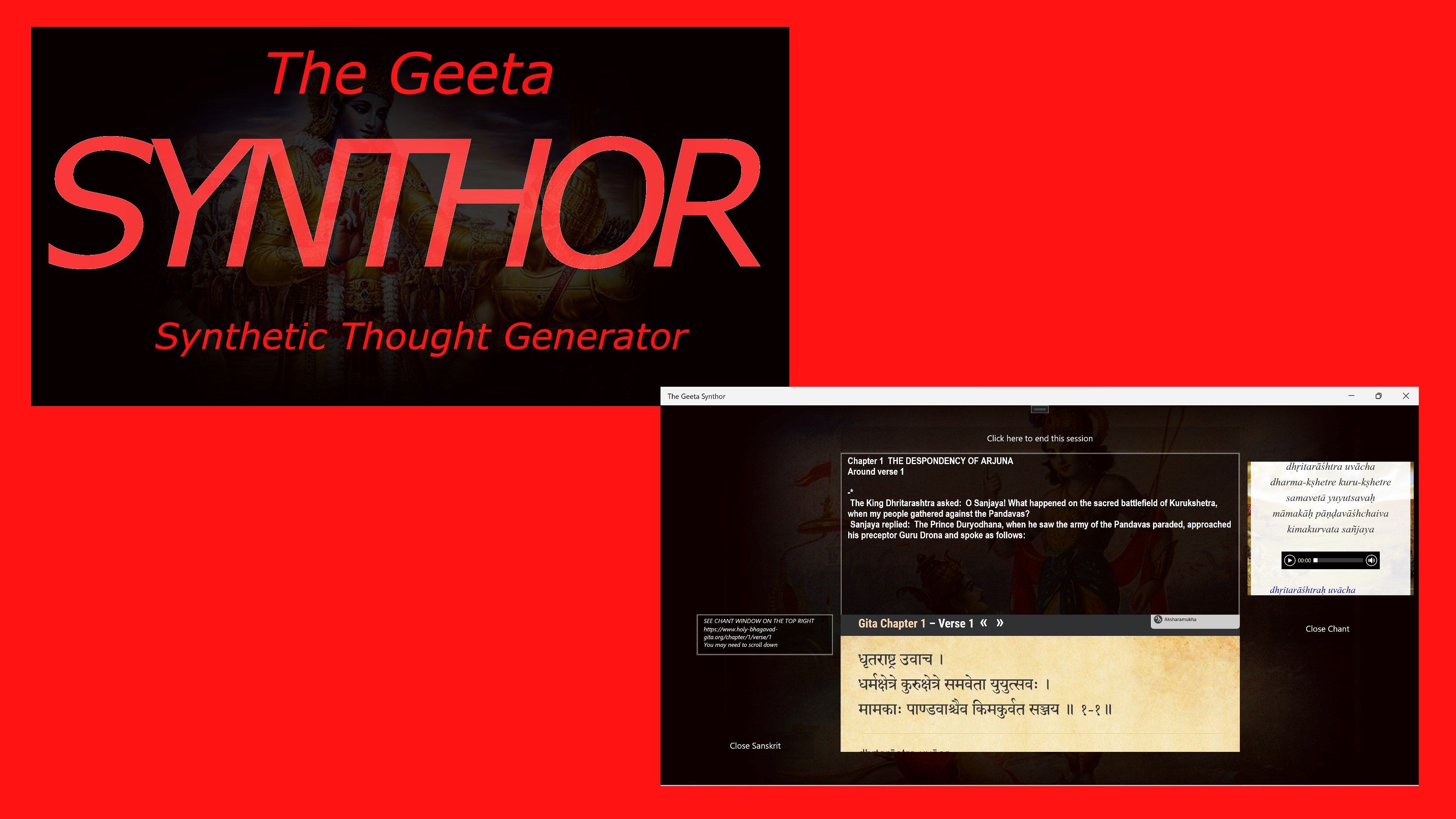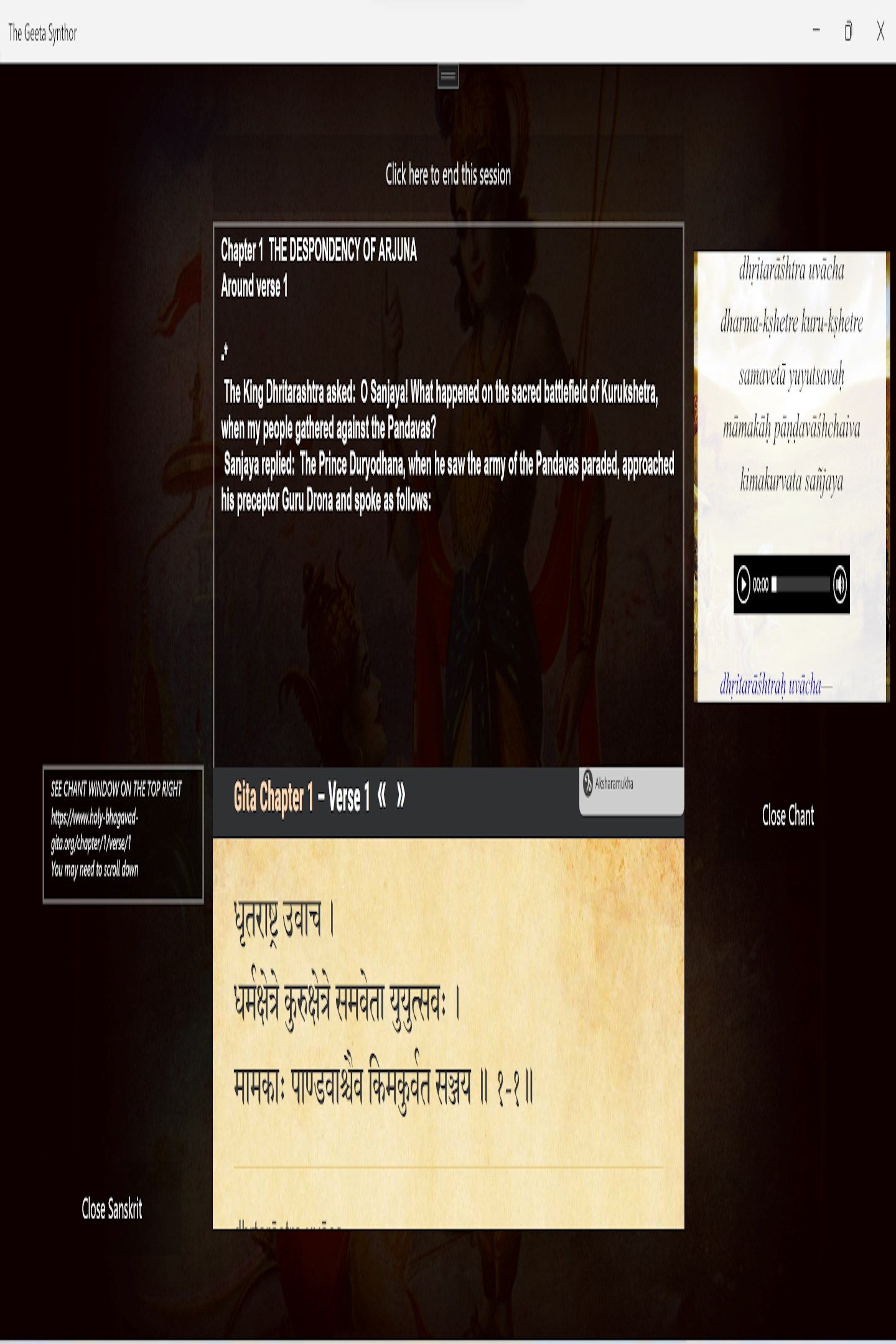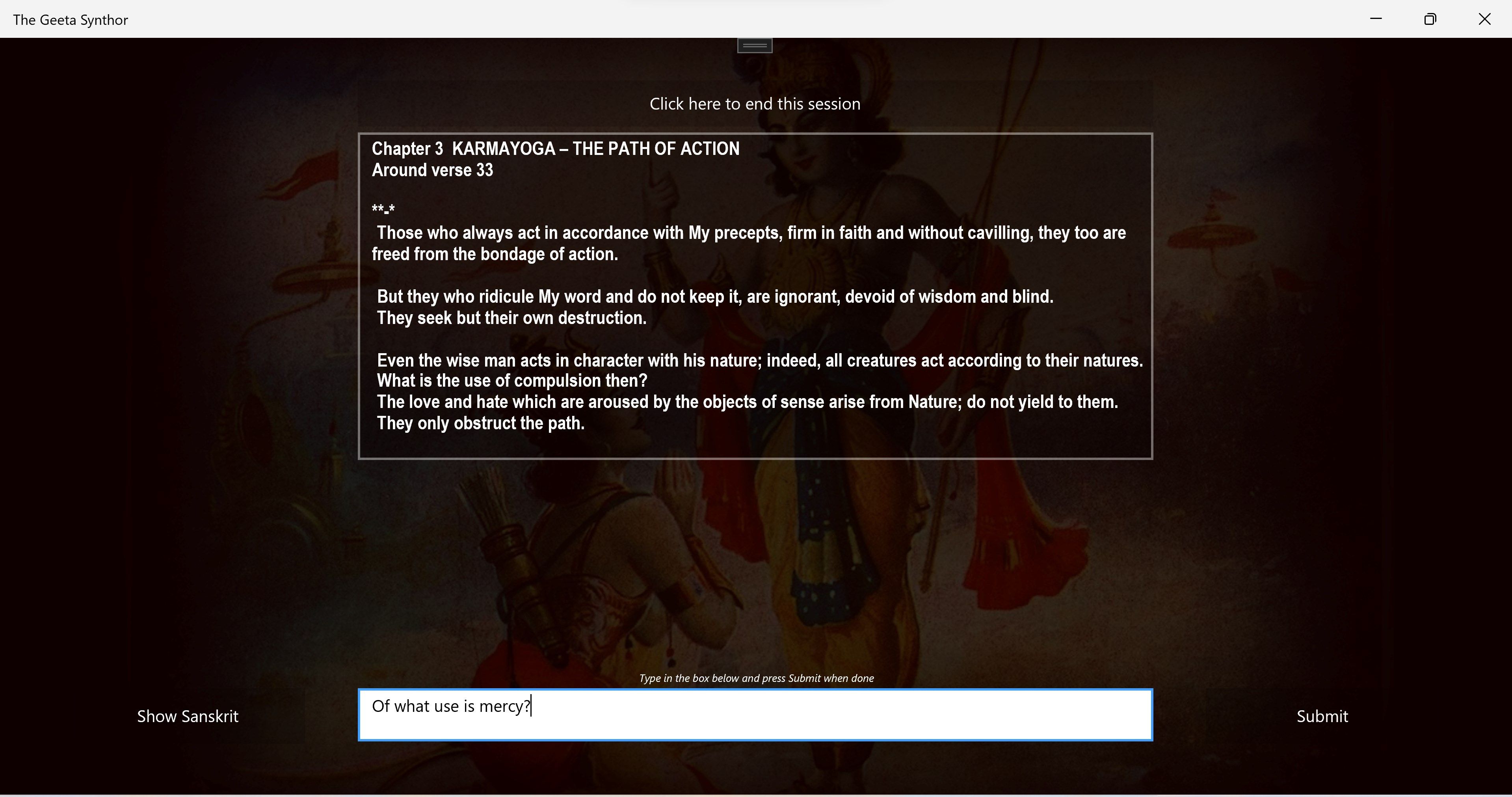
The Geeta Synthor



App details
About The Geeta Synthor
The Bhagavad Geeta has long been recognized as one of the world’s spiritual classics and a guide to all on the path of Truth.It was possibly composed later than the Vedas and the Upanishads – possibly between the fifth and second centuries BCE. It is one of the most influential books of all time.
The Geeta shapes the beliefs and attitudes of billions of people, but are seldom read. The references come from another person, who heard it from another person…like in a Chinese Whisper. This Synthor can tell you what is actually written in these ancient and timeless texts.
A Synthor can present ideas or ‘thoughts’ of an author in response to statements, questions or comments from persons interacting with it. We will call such a system a “Synthetic Thought Generator”, abbreviated to SYNTHOR.
A book is a collection of sentences that need to be read in sequence. This, indeed, is the main reason why people who are short of time, or with a deficit of attention, cannot read books, even if they want to. As discussed above, the company of a person who has read a book can partially compensate for someone who has not read the book. Reading a few lines at random from a book cannot be a replacement for the company of someone who has read the entire book. Similarly, looking up keywords from the index of a book will not provide a similar replacement. What then is the difference between the company of a person who has read a book as against other mechanical means of finding a relevant portion of a book?
The answer to this question lies in the stochastic nature of human thinking. The response of a human being to a statement, question or comment is constructed out of a ‘cloud’ of possible responses, the construction being dependent on prior knowledge, memory, recall and mood, among many other psychological or physical factors. As a result, the response to the same verbal stimulus may be different at different times. This variety is what attracts people to each other instead of to a mechanical algorithm that always produces the same response to a particular stimulus.
If conversation with a Synthor is to have even a semblance of the usefulness of a conversation with a person, its design must incorporate uncertainty. Here, we define a mind as a collection of thoughts, each thought being represented as one or more sentences. This definition is a purely functional one for the purpose of creating a Synthor and does not, necessarily, have any connection with what an actual mind is –if there is something called an ‘actual mind’.
Each sentence in the cloud of sentences that constitute a Synthor’s mind has an equal probability of becoming a response to a stimulus such as a statement, a comment or a question. However, context, keywords, and appropriateness (mood) determine the sentence, or sentences, that will be actually selected for response. In other words the probability of sentences appearing as a response are adjusted until a sentence or set of sentences ‘collapse’ into an actual response. This is analogous to the way the state of a fundamental particle in nature is revealed as the probabilities of many possible states collapse into one particular state in response to a measurement.
This Synthor consists of methods for determining the probable context for a conversation, extracting keywords that represent this context, then adjusting the probability of selection using a ‘mood’ that will represent the appropriateness of a response, and, finally, presenting the most probable response from a final list of high probability responses. In addition, each step in this selection process can be altered by the probability of forgetting to adjust a value. A Synthor with a mind consisting of the contents of just one book would respond as a whimsical but knowledgeable reader of that book.
This Synthor contains the entire text of the English translation of the Bhagavad Geeta as translated by Purohit Swamy around 1937CE.
Remember, Synthors can be moody, forgetful and disjoined - it all depends on you…